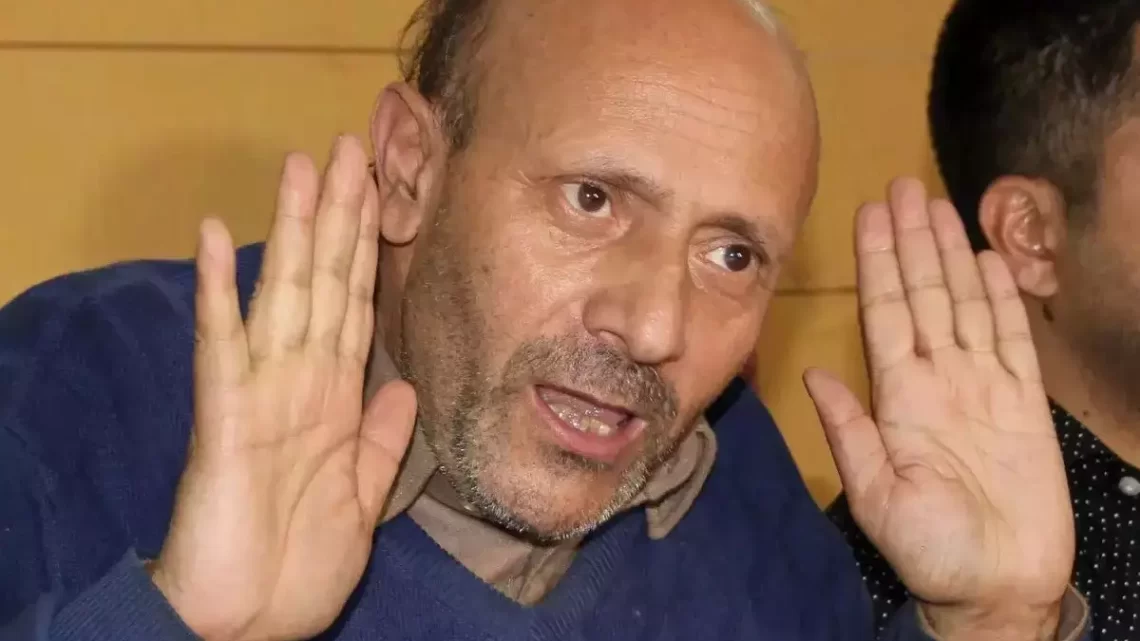
Imprisoned Engineer Rashid Secures a Historic Victory in IIOJK’s Lok Sabha Election
June 25, 2024In a landmark election on January 4, 2024, the results of the Lok Sabha election in the Indian Illegally Occupied Jammu and Kashmir (IIOJK) sent shockwaves through the political landscape. This election saw traditional powerhouses like the People’s Democratic Party (PDP), the National Conference (NC), and the Bharatiya Janata Party’s (BJP) proxy parties, including the Democratic Progressive Azad Party (DPAP), People’s Conference, and Apni Party, suffer significant defeats. Notably, jailed former legislator Abdul Rashid Sheikh, running as an independent candidate, emerged victorious in Baramulla, defeating former Chief Minister Omar Abdullah.
The election was marked by an unusually high voter turnout in the Kashmir Valley, a region historically characterized by low electoral participation. This surge in voter engagement is widely interpreted as a clear signal of resistance to the BJP’s political strategies and influence. The people of Kashmir, through their votes, have emphatically rejected the BJP and its proxies. Candidates advocating for the restoration of statehood won decisively in the Kashmir Valley, underscoring the electorate’s desire to reverse the controversial changes imposed by the central government.
In Baramulla, Abdul Rashid Sheikh’s victory over Omar Abdullah stands out as a defining moment. Sheikh, who has been imprisoned since August 2019 under the Unlawful Activities (Prevention) Act (UAPA), ran his campaign from behind bars and still managed to secure a resounding win. This victory is seen as a powerful statement against the BJP’s policies and their impact on the region.
Similarly, in the Anantnag-Rajouri constituency, NC candidate Mian Altaf Ahmad defeated another former Chief Minister and PDP president, Mehbooba Mufti. In Srinagar, NC’s Aga Syed Ruhullah Mehdi triumphed over PDP’s Waheed Ur Rehman, further consolidating the rejection of the BJP and its allied parties.
In contrast, the BJP managed to secure only one seat in the region, with Jitendra Singh winning in Udhampur. The BJP’s strategy of forming a coalition government with the DPAP, Apni Party, and People’s Conference appears to have faltered, particularly in the Kashmir Valley where they refrained from fielding candidates to avoid splitting the anti-BJP vote. Instead, their focus on the predominantly Hindu Jammu region yielded minimal success.
The backdrop to this election is the BJP’s revocation of Jammu and Kashmir’s special status in 2019, a move that has intensified local grievances. The political narrative in IIOJK is now steeped in anger over the suppression of rights, erosion of local autonomy, and demographic changes prompted by new domicile laws. This election, the first parliamentary contest in the Union Territory since the abrogation of Article 370, was conducted in five phases, reflecting the complexities and tensions in the region.
Pro-government media outlets have attempted to portray the high voter turnout as support for the abrogation of Article 370. However, the election results tell a different story. The Kashmiri electorate’s decisive rejection of BJP’s proxies and their policies underscores a strong desire to reverse the 2019 decision and restore their rights and autonomy.
The 2024 Lok Sabha election in IIOJK is a historic moment that reflects the deep-seated aspirations and sentiments of the Kashmiri people. The victory of imprisoned Abdul Rashid Sheikh and other anti-BJP candidates marks a significant shift in the region’s political dynamics, highlighting the electorate’s determination to reclaim their rights and challenge the status quo.

